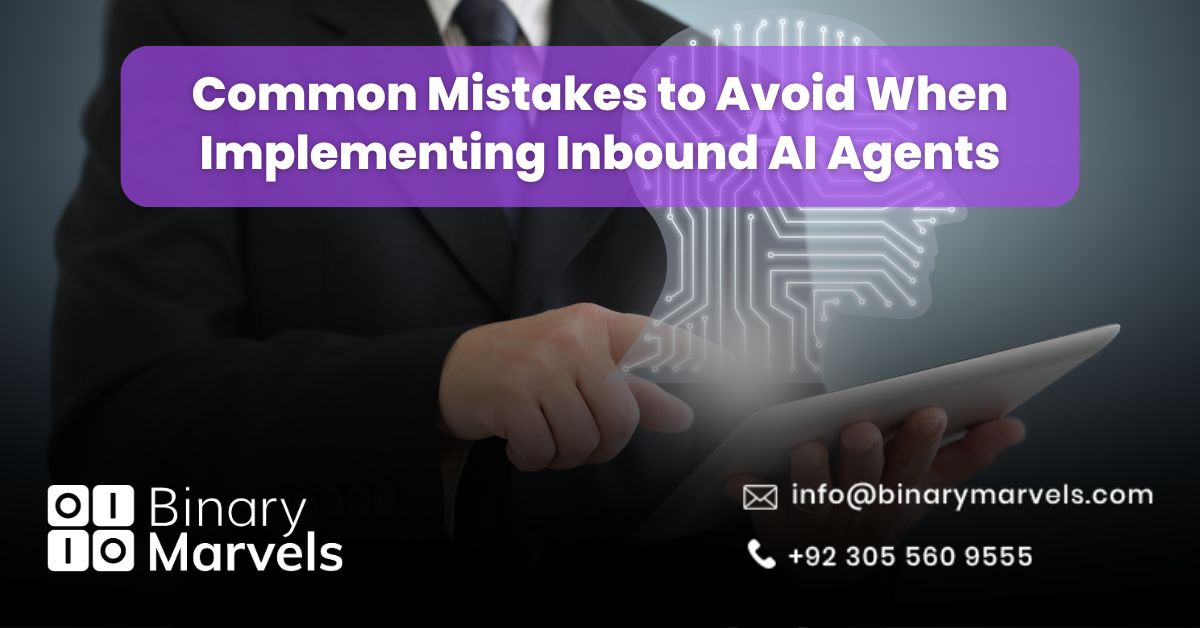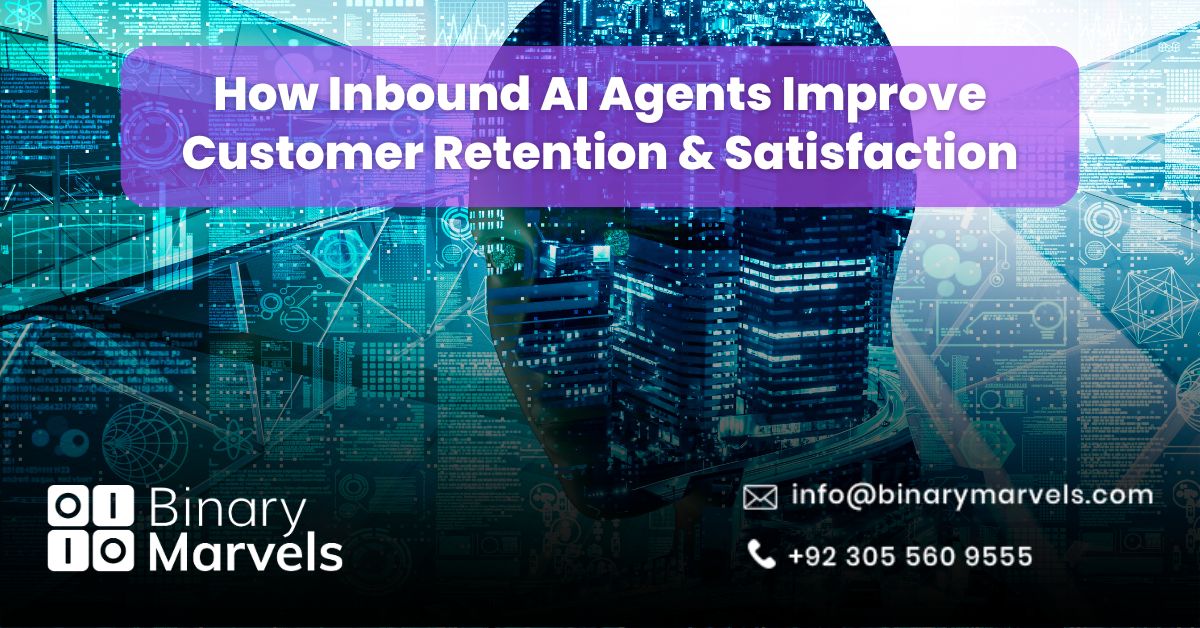
Are you struggling to get your inbound AI call agent to deliver the results you expected? Inbound AI call agents can transform customer service by handling calls efficiently and improving response times, but many companies make avoidable mistakes that limit their effectiveness. Understanding these common pitfalls is essential to ensure your AI voice agent delivers a seamless experience while maximizing ROI.
In this article, we’ll explore the key mistakes to avoid when implementing inbound AI call agents and share tips for successful adoption.
Also Read: Top 10 AI Companies in Pakistan
Common Mistakes to Avoid When Implementing Inbound AI Call Agents
1. Failing to Define Clear Goals
One of the most common mistakes when implementing an inbound AI call agent is not setting clear objectives from the start. Without defined goals, it’s difficult to measure success or understand how the AI is impacting customer service. Businesses should identify key performance indicators such as call resolution time, customer satisfaction scores, and lead conversion rates.
Failing to do so can result in inefficiencies, wasted resources, and missed opportunities to improve the overall customer experience. Clearly defining what you want your AI agent to achieve is the first step toward a successful implementation.
2. Ignoring Customer Experience Design
Another critical mistake is overlooking the design of customer interactions. Even the most advanced AI voice agent for inbound calls can fall short if the conversation flow feels robotic or confusing. Common issues include long hold times, unclear prompts, and poor handling of errors or misunderstandings.
Prioritizing customer experience means mapping out realistic scenarios, using natural language, and ensuring smooth transitions between AI and human agents. A well-designed experience keeps customers engaged, reduces frustration, and enhances the effectiveness of your inbound AI call agent.
3. Underestimating Integration Challenges
Many businesses make the mistake of underestimating the complexity of integrating AI inbound call solutions with existing systems. Connecting the AI agent to your CRM, ticketing system, and databases is essential for consistent and accurate responses.
Failing to integrate properly can lead to siloed data, duplicate efforts, and a disjointed customer experience. To avoid these issues, plan the integration process carefully, involve your IT team early, and ensure the AI agent can access the necessary data in real time for seamless interactions.
Also Read: The Role of NLP and Machine Learning in Inbound AI Call Agents
4. Lack of Training Data and Continuous Learning
A common pitfall in implementing inbound AI call agents is not providing enough quality training data or neglecting ongoing learning. AI voice agents rely on accurate and comprehensive data to understand customer queries and respond effectively.
Without continuous updates and improvements, the AI can make repeated errors, provide irrelevant answers, or fail to handle new types of requests. Regularly reviewing interactions, updating scripts, and refining the AI model ensures your agent stays effective and continues to meet customer expectations.
5. Overlooking Compliance and Privacy Requirements
Ignoring compliance and privacy regulations is a serious mistake when implementing inbound AI call agents. AI systems often handle sensitive customer information, and failing to follow rules like GDPR or HIPAA can lead to legal issues and damage your brand’s reputation.
Common errors include improper call recording, storing personal data insecurely, or not obtaining necessary consent. To protect both your business and your customers, ensure your AI agent adheres to all relevant regulations and incorporates robust security measures for data handling.
6. Not Monitoring Performance Metrics
Failing to track and analyze performance metrics is a common error when using AI inbound call solutions. Without monitoring key indicators such as calls handled, resolution rates, and customer feedback, it’s impossible to know whether your AI agent is performing effectively.
Relying solely on anecdotal feedback can lead to missed opportunities for improvement. Implementing dashboards and analytics tools allows you to measure success, identify issues early, and continuously optimize your AI agent for better customer satisfaction and operational efficiency.
Supercharge Your Business with AI Today!
As a trusted AI Development Company in Pakistan, we deliver cutting-edge AI Development Services designed to streamline your operations and enhance customer engagement.
Don’t wait—connect with us now and take your business to the next level!
Conclusion
Implementing an inbound AI call agent can greatly enhance customer service, but avoiding common mistakes is essential for success. Defining clear goals, prioritizing customer experience, ensuring seamless system integration, providing quality training data, complying with privacy regulations, and monitoring performance metrics are all critical steps.
By addressing these areas, businesses can maximize the effectiveness of their AI voice agent, improve customer satisfaction, and achieve a higher return on investment. Taking a strategic and proactive approach ensures your AI inbound call solutions deliver lasting value.









